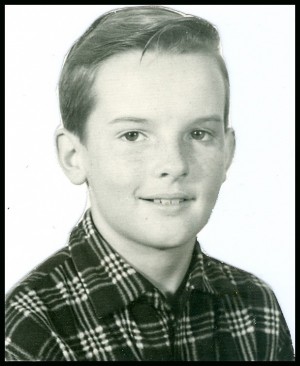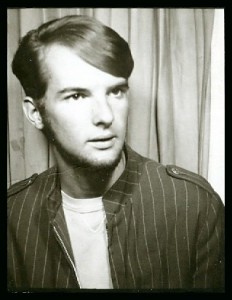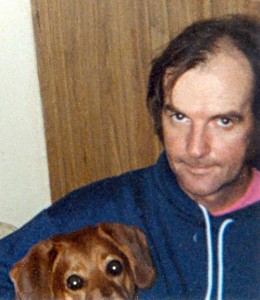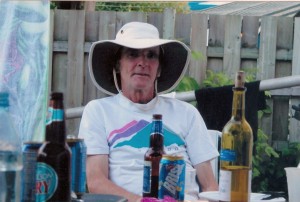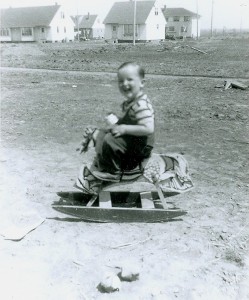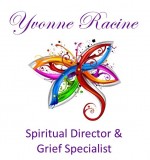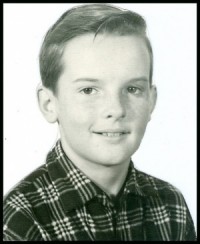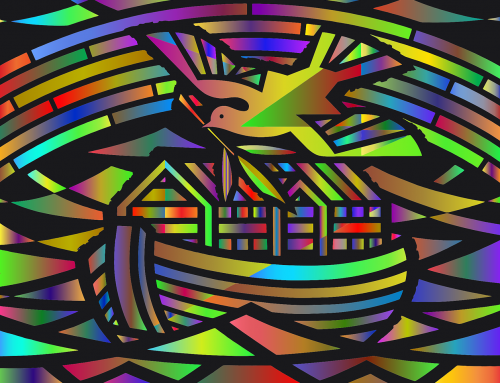by guest blogger Christopher Moon
Of the eight children in our family, my brother Douglas was the most troubling, if not the most troubled. When I was a young boy he was a lot of fun to be around—playful, generous, funny, and always coming up with creative ideas regarding games that we could play. He seemed to be constantly organizing us younger siblings into games of tag or hide-and-seek with the other kids in the neighborhood, and even organizing amateur concerts where we would sing or act out skits for our parents.
As he grew up he became much more of a burden. He stole money, played truant from school, lied, and often stayed out past curfew. Although parental threats and punishment were effective control mechanisms with the rest of us, they rolled off Douglas like water off a duck’s back, as he continued to do whatever he pleased. When he was a teenager, he discovered alcohol and was already on a downward spiral by his mid-twenties, leaving behind a trail of friends and family to whom he owed money and never paid back, jobs lost due to tardiness or absence, unpaid landlords, and a marriage that failed before reaching its one-year anniversary. By the time I was nineteen, I left Montreal to live in Vancouver, never wanting to see my brother again.
One of the amazing things about Douglas was his memory. He seemed to know exactly how much he owed every person from whom he borrowed, and he was adamant that he would repay all of us one day. When I was thirty-eight years old I received a letter from him where he assured me that he would pay me back the forty-seven dollars I lent him when I was nineteen! Another remarkable characteristic was his ability to walk for miles in cold, snowy weather, wearing only worn-down shoes, to get to work every day because he had spent all his bus fare on alcohol. Surprisingly, Douglas could always find work when he needed to, regardless of the economic environment or of how badly his body was eaten away by his addiction. Yet he would blow all his pay on booze in the first week and end up “borrowing” money from my sister Judith to get him through to the next payday.
Every summer my brother had the habit of getting drunk, putting on his bathing suit, and going to a nearby park to sunbathe. This often led to him falling asleep and literally frying under the fierce summer sun. He would awaken with terrible burns all over the front of his body and then he apparently turned over to make sure his back received similar treatment. This was likely what led to his skin cancer.
He lived the last few years of his life alone, with only his three sisters to maintain contact with him, as the rest of the family and relatives had little to no patience for his incoherent communication and unreliable behaviors. To shorten this story, I will simply say that he died with a hole in his face so bloody and ragged that when the police found him on the floor of his basement room, they thought he had been shot in the face.
Now we come to the point of this story: When my sister called to tell me of his death, I wept. By this time, I was fifty-five and both of my parents, my oldest brother, and my youngest sister had long since passed away. Mostly I experienced a peaceful sense of appreciation for them when I heard the news. But for Douglas, I wept.
He had lived the last few years of his life in a dingy basement apartment with bare concrete walls and no windows, and only my dear sister Judith to keep in constant touch with him and make sure he had food, and enough bus fare to get to his chemotherapy treatments. And then he died. There was no funeral for him, because… well, except for his three sisters, who would have attended?
As Judith shared with me the details of his passing, I could not hold back the tears, but they weren’t tears of loss, pity, or regret.
It’s been said that when a person dies, they leave behind a gift to each of the people to whom they were close. I don’t know if this is true, but Douglas’s death allowed me the beautiful opportunity to actually see without judgment. I didn’t see the alcohol addiction, unpaid debts, deceits, or disappointments as flaws or failures, but simply as neutral characteristics of a spiritual being playing out a human drama. I didn’t see an unlovable person, or someone I might judge to be a loser, because I didn’t have any judgments in me. I truly saw my brother. It was so beautiful that I wept tears of love, awe, and gratitude. Thank you, Douglas, for helping me come to know you, and for allowing me a glimpse into what a life without judgment is like.
